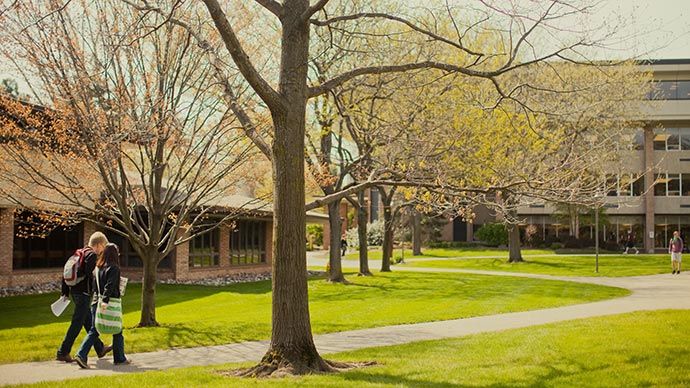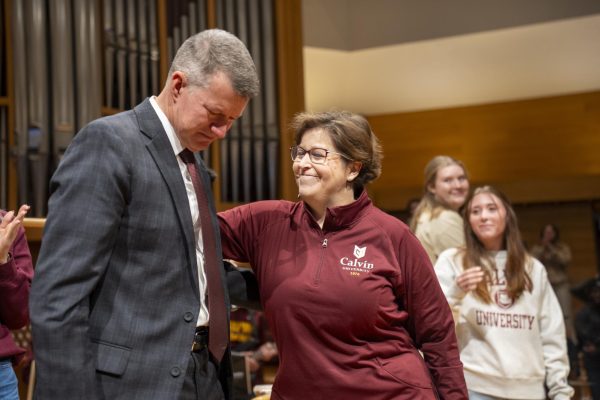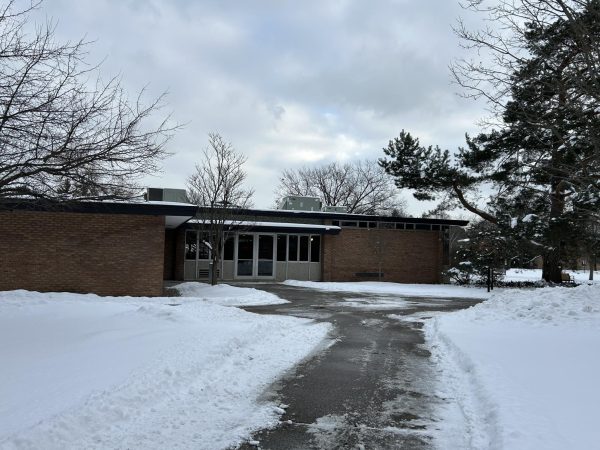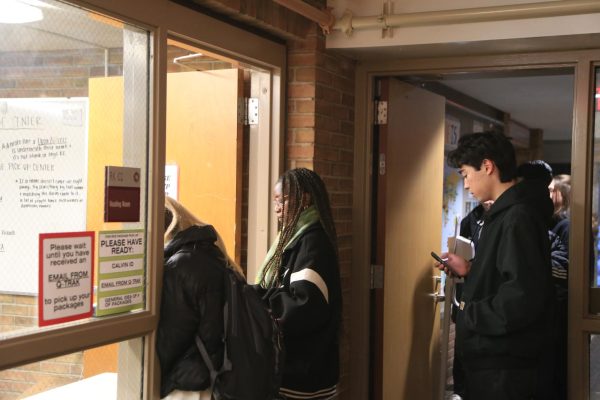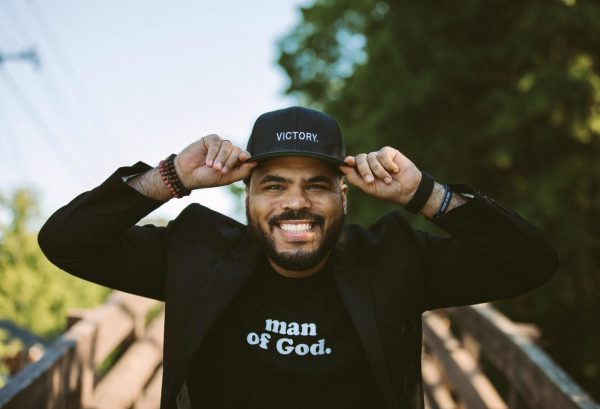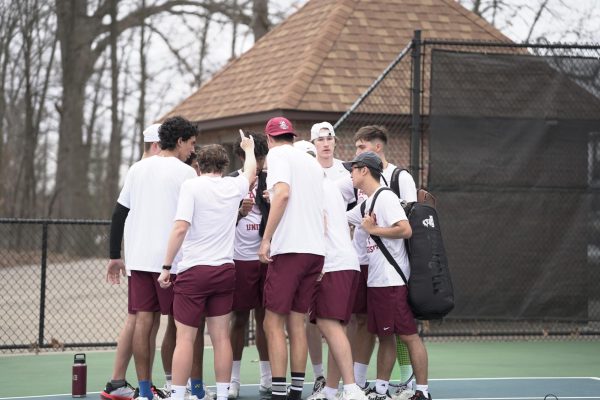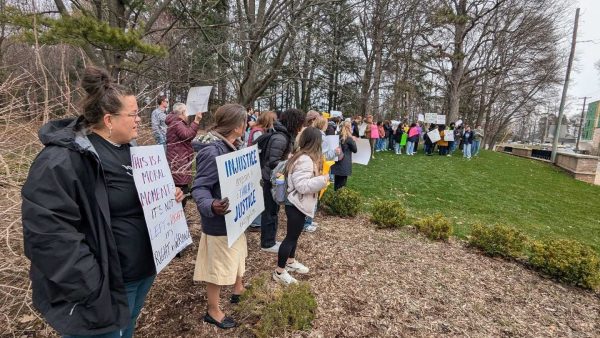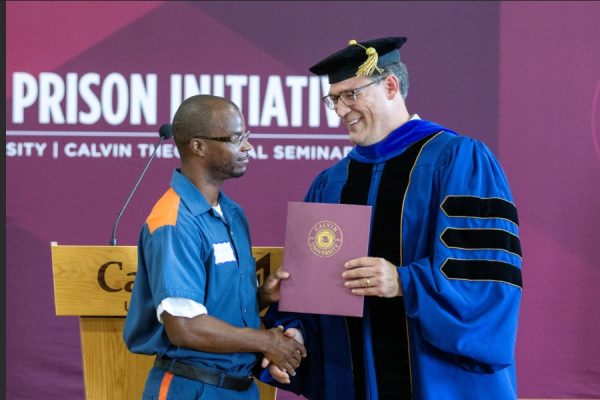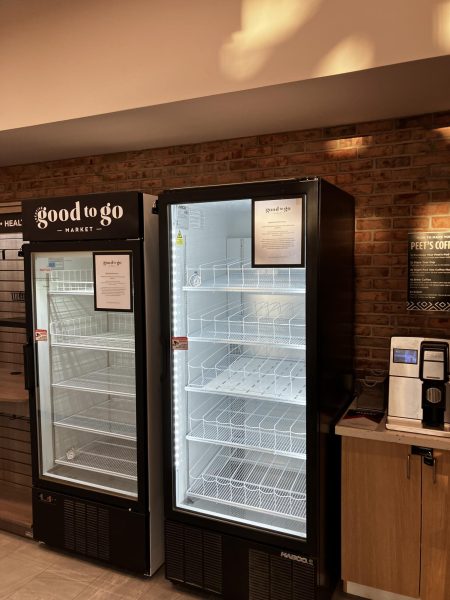Draft statement envisions Calvin as university
The Vision 2030 team has released a new draft vision statement that includes rebranding Calvin College as Calvin University by 2030.
The team is holding three forums to present the statement and receive comments from staff, faculty and students. The first two forums were held on Thursday, Feb. 8, and Tuesday, Feb. 13, and a third is scheduled for 2–3:30 p.m. on Friday, Feb. 23, in the Alumni Association Board Room.
The visioning process was termed Vision 2029 in the fall because it was designed to shape the next two five-year strategic plans, which will end in 2024 and 2029, respectively. However, the process was recently renamed Vision 2030, clarifying it to audiences unfamiliar with the strategic process.
The second forum was hosted by Sarah Visser, vice president for student life, and President Michael Le Roy. A few dozen faculty and staff from across the college attended. After an introduction of the visioning process by Visser, Le Roy explained the statement in detail.
Both Le Roy and Visser emphasized that the vision statement shouldn’t be read apart from Calvin’s mission statement: “Calvin College equips students to think deeply, to act justly and to live wholeheartedly as Christ’s agents of renewal in the world.”
While the mission statement is permanent and directs everything that happens at Calvin, the vision statement is a more “time-bound” document that sets goals for the next decade, Visser said.
“Think of the vision statement as a resource, a set of talking points, to help others understand the direction of the institution,” Le Roy said to the forum attendees.
Below is an annotated version of the draft vision statement, including background information as well as comments from Visser and Le Roy at the Feb. 13 forum:
[First paragraph:] Calvin is called to promote the welfare of the city and the healing of the world.
Le Roy called this sentence, with its references to Jeremiah 29:7 and Revelation 22:2, a “statement of aspiration” that governs the rest of the document. He said the Vision 2030 team wanted to express the idea of “shalom” in language more accessible to those outside the Reformed tradition.
By 2030, Calvin will be a Christian liberal arts university with an expanded global influence.
Whether to become a university was one of four visioning questions the Vision 2030 team used to shape their conversations in the fall.
Le Roy emphasized the importance of both the liberal arts and the professional programs to a university model.
“As I’ve listened and observed over the last six years, I hear a level of anxiety and dissatisfaction between these two area of study that is so deep that it’s actually been kind of dispiriting,” he said. “For us to continue down the same road for another ten years felt that we were postponing inevitable kinds of questions about how we are organized and how these disciplines relate to one another.”
We envision Calvin University as a trusted partner for learning that engages the academy, the church, and the world at large.
This sentence sets a goal to continue expanding Calvin’s educational offerings beyond a traditional four-year undergraduate education. Le Roy mentioned several potential programs that had been suggested to Calvin recently, including digital distance learning partnerships with Lumina College in Hong Kong and Eastern Christian High School in Midland Park, N.J.
“If we decide that we only want to be a trusted resource for 18-to-22-year-olds who want to come to Calvin, we will be missing many of these opportunities in our world,” Le Roy said.
[Second paragraph:] In all things, we remain rooted in a Reformed faith that seeks understanding.
Le Roy called the last three sentences “the assurance paragraph” because they affirm Calvin’s ongoing commitments to its theological heritage and educational philosophy.
We reaffirm our invitation to the great conversations across all domains of learning and across ecumendical and cultural differences.
According to Le Roy, the visioning team heard from faculty across the college last fall that they want more opportunities for interdisciplinary work and other bridges between departments. In addition, the sentence envisions Calvin continuing to be “conveners of conversations” across many faiths and cultures.
And, we celebrate learning that forms us through teaching, scholarship, and service.
This sentence also lists three primary roles for faculty members, which are the same as they are today. Le Roy also shed light on the word choice:
“We wanted a really challenging verb for the Calvinist community,” he joked, “so we thought ‘celebrate’ was a good one.”
Below those six sentences, the vision team listed four pairs of values that shaped the vision statement: “Excellence and Community,” “Curiosity and Conviction,” “Diversity and Inclusion” and “Tradition and Innovation.”
Visser said these values emerged “non-negotiables” that community members raised at Vision 2029 discussions last fall.
“It’s clear to us that this is a value-laden community,” she said.
Visser emphasized that while Calvin will be changing its structure, expanding its programs and developing digital learning, it will remain focused on undergraduate liberal arts education and a residential student life experience.
“Calvin a decade from now will probably look a lot like it looks right now,” Visser said, “but that innovation and that aspirational vision will have expanded even beyond the traditional classroom walls.”




